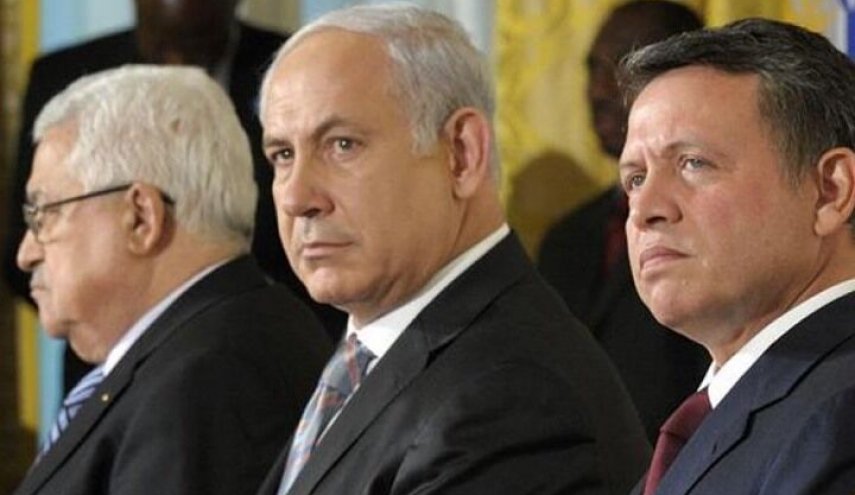Ali Abdi, in an interview with the website of the Strategic Council on Foreign Relations, referring to the tension between Jordan and the Zionist regime and the ban on the use of Jordan’s space, stressed: The tension is unprecedented and Jordan’s relations have never been clear of tension due to its neighborhood with the Zionist regime.
Explaining the positions of the two sides after the recent tensions, he added: Some media outlets had reported that when the Crown Prince of Jordan, Hussein bin Abdullah, was planning to visit Jerusalem, the Zionist regime blocked the trip under the pretext that his security team was too large, but the Jordanian Foreign Minister announced that the Al-Aqsa Mosque and the Islamic Endowment of Quds are affiliated to the Jordanian Ministry of Endowments, and that the Israeli regime intended to change the entry schedule, and because the program of worship for Palestinian worshipers was changing, the Crown Prince was not satisfied to create any problem for the Muslims and, therefore, cancelled his pilgrimage.
The expert on West Asia affairs said: Following this move, when Netanyahu decided to fly to the UAE, of course as they claim, Jordan did not allow him to enter its airspace via Dubai, although there is a lot of speculation and controversy about Netanyahu’s cancelled flight, including the illness of his wife Sarah Netanyahu and other issues, especially security issues.
Netanyahu’s trip canceled due to security threats
The expert on the Zionist regime’s issues, saying that some analyzes indicated that those issues were more an excuse, noted: Although Netanyahu’s office had pointed out the problems in coordinating the passage of the Prime Minister’s plane over Jordanian airspace to the UAE, it seems that the reason for Netanyahu not going to the UAE was mainly security issue and threats he felt about making the trip. There were messages that if the meeting took place, it could pose a serious security risk to both sides, prompting Netanyahu to cancel the meeting.
Abdi added: Of course, this is the second time that Netanyahu’s visit to the UAE has been postponed under various pretexts, but this time it also showed the tension between Jordan and the Zionist regime again. Of course, Jordan also confirmed that Netanyahu’s plane was not allowed to fly over its skies. We had other similar cases in this regard; like the assassination of Khaled Mashal in 1997, which was carried out by the agents of the Zionist regime without the knowledge of the Jordanian government, and when it was defeated and disgraced, it caused great annoyance for King Hussein, the then King of Jordan. Netanyahu was prime minister at that time when tension arose.
Disputes over annexation of Jordan River Valley
The West Asia analyst continued: What exists now are sharp theoretical differences over the annexation of the Jordan River Valley to occupied Palestinian territory by Netanyahu; an issue that was also agreed upon by the Trump administration and sought to annex the region to the West Bank. The Jordanian government strongly opposes this decision and tried to use its tools as well. For example, it withdrew from the peace process negotiations, and the recent events are not unrelated to the issue of the annoyance of the Jordanian Hashemite government from the annexation of the Jordan River Valley to the occupied territories.
Abdi, meanwhile, referred to some news about the possibility of Netanyahu meeting with bin Salman in the UAE, saying: It was not unlikely that the same thing would happen and bin Salman would be there and have a meeting at the airport.
Jordan concerned about handing over custodianship of Palestinian holy sites to Saudi Arabia
He also pointed to some analyses on Saudi Arabia’s efforts to escalate tensions between Jordan and the Zionist regime with an aim of gaining the privilege of sponsoring Al-Aqsa Mosque, as well as news of Saudi Crown Prince Mohammed bin Salman consulting with Netanyahu to take the guardianship of the Palestinian holy sites from Jordan as other issues criticized by Jordan.
Regarding Jordan’s role in regional developments and its position on the normalization of relations between Arab countries, especially Saudi Arabia, with the Zionist regime, Abdi said: Jordan has never been a key player in the region and there are many reasons, including geopolitical, population and political regime, as well we its severe dependence on countries like the UAE and Saudi Arabia are noticeable in this regard; because Jordan, like the Arab countries in the Persian Gulf, does not have high oil, gas and income resources.
He continued: This dependence is very influential in decisions and measures, but Jordan has always tried to maintain the balance, but at the same time Jordan has normalized its relations with the Zionist regime and recognized the regime and has an official embassy and cannot oppose the process of normalization with other countries; as is among the leaders, and in the Oslo talks, King Hussein was one of the key figures alongside Hosni Mubarak.
He stressed that what Jordan is currently challenging with the regime is territorial disputes. It has no serious opposition to the regime’s principles and has never had any, Jordan has never been serious in the fight against Israel, because the founder of the Hashemite Jordan, King Hussein’s father and his grandfather had secret relations and negotiations with the Israelis since the establishment of that regime.










0 Comments